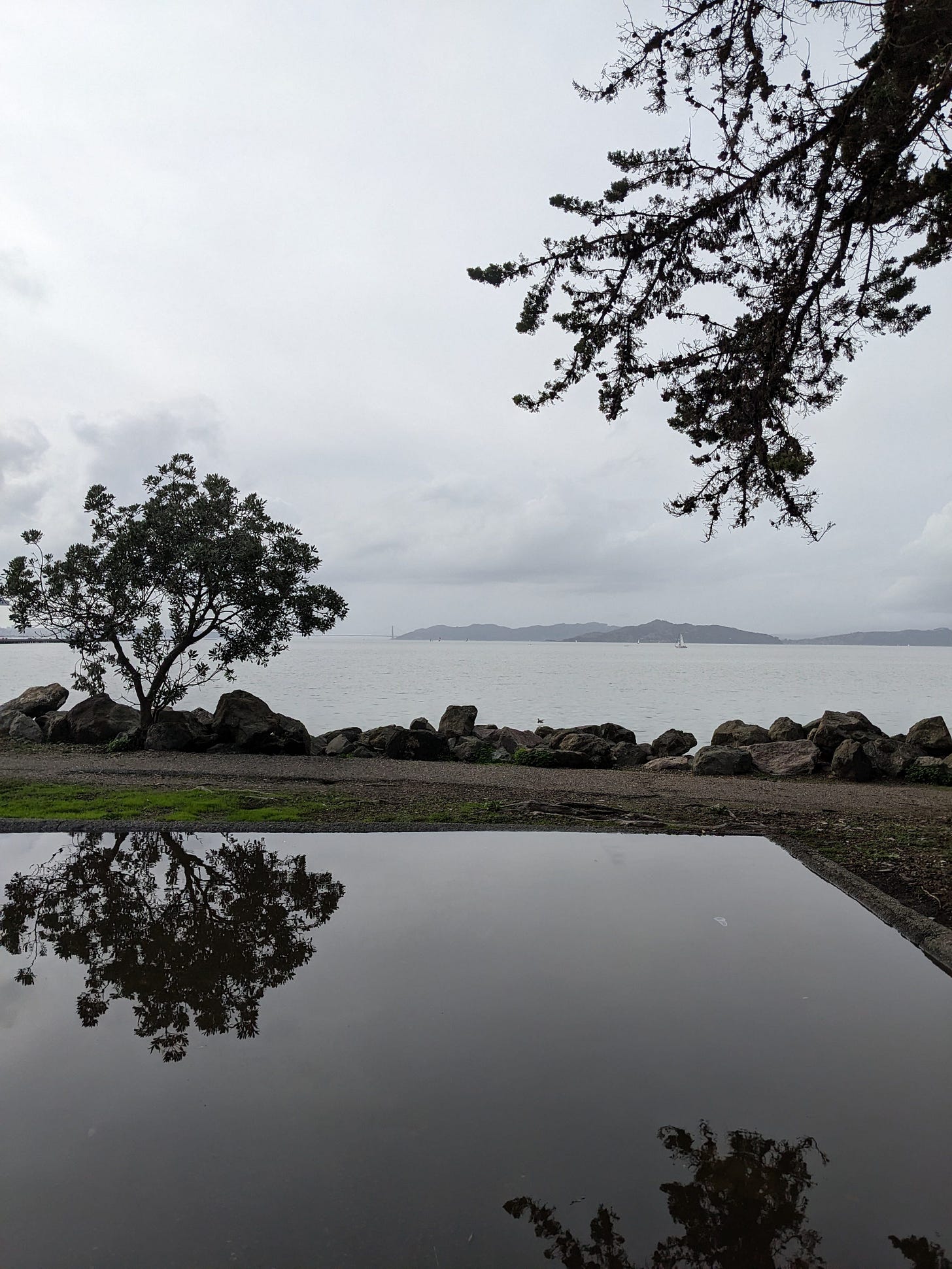"First of all, people should renounce themselves:"
On Radical Choice & Choicelessness in Spiritual Systems
THE ONLY WAR THAT MATTERS IS THE WAR AGAINST THE IMAGINATION
THE ONLY WAR THAT MATTERS IS THE WAR AGAINST THE IMAGINATION
THE ONLY WAR THAT MATTERS IS THE WAR AGAINST THE IMAGINATION
ALL OTHER WARS ARE SUBSUMED IN IT
—Diane Di Prima, Revolutionary Letters (1969-71)
Every morning at 6am, I get an autogenerated email with an excerpt from a book or lecture by Abraham-Hicks, and every morning (a few hours later) I check my phone and carefully read and reread the day’s chosen excerpt. Esther Hicks is a writer and inspirational speaker from Utah who channels (/translates a group of non-physical entities called) Abraham. (“Source” could be another term for Abraham.) Their work forms the core of what was made into the popular documentary “The Secret” back in 2006. Abraham-Hicks (the shorthand for their working alliance) conspires to demonstrate the New Thought idea “the law of attraction,” which describes the basic principles of thought manifesting reality that popular culture associates with the New Age and calls “manifesting.” As one of the few locals at our spot, I used to entertain-educate-irritate the other vanlifers, utopian transplants, by explaining how that “good vibes only” crap they were buying was code for California Fascism.

Abraham-Hicks emphasizes self-empowerment of desires, desirousness, desiring by means of attending to your thoughts and managing your attitudes as much as possible, so that you bend with as little resistance as possible towards satisfaction. (compare with Human Design’s ‘passenger consciousness’, Breakthrough Initiation, witnessing/vipassana/’just noticing’). It may be impossible to achieve a holistic understanding of human spirituality in binaristic terms. Fine. Choiceless and radical choice-y-ness both serve. I’m wary of (being accused of) ‘victim blaming’: you chose this life. You choose to suffer. And I am reminded of Joan Suval: There are no innocent victims. Was she referring to karma? Original sin? Or an absence of any genuine victimhood?—or an absence of any genuine innocence?
There is a neurotically fine line between denial and acceptance, and it hangs on what you take to be ‘what is’. Pain has always been the sticking point of physical reality for me, as it is so vibrant, so immediate, and usually so incredibly unpleasant. Who would choose a life marked by recurring pain? Raised in an environment soaked in Abraham-Hicks style choicefulness, having had it assumed that I chose to suffer from debilitating chronic pain and illness, I’ve personally needed to finesse this concept of radical choice to make it workable for me. Beginning at age thirteen, combined with this immature secondhand understanding of the radically choiceful life, the overwhelm of suffering attendant on pain has long since resulted in a personality narrative (an ego) built on a core wound of inadequacy and helplessness. I could not discern between blame (‘what did I do to deserve this?’) and responsibility (‘how am I to alleviate these symptoms and live a life’?).
I can imagine, however, how for some, a spiritual system centering radical choice could be crucial to their survival, seeming to empower themselves in an extreme way: by believing and acting as if everything that ever happened to them had indeed been chosen and approved by their soul before they incarnated in this lifetime. Yes, I agreed to this, they say, meaning their parentage, their traumae, their genetics, their financial and health struggles, and so on ad nauseam. ‘I chose this,’ as the tow truck clamps its jaws around your maimed car’s tires.
Enter a conscious-mental offshoot of the spiritual system of radical choice: the art of Seeing Everything As A Lesson. To claim that suffering as chosen: a powerful way to relieve yourself of the vulnerability and shame of being a victim. A sense of control may thereby be wrested from any situation by the person experiencing it; and relief of anxiety, and soothing of existential (or even immediate) terror, may result.
I am following William James’ pragmatist approach to the study of religion and spirituality here. Whether Seeing Everything As A Lesson is basically a cosmic coping mechanism or something more does not matter on the ground: if it works, it works. As much as anything can be, it is personal. (Am I saying you choose having a choice? And would this disintegrate the logical structure of this essay? Skip if so.)
On the other side of this sketch, there are those for whom it is all said, and what’s left is the doing—and barely that. As opposed to Internalizers, who get a hit of safety by hyperextending their imagined sphere of influence (and then rationalize/spiritualize this by Seeing Everything As A Lesson), Externalizers gravitate toward cosmic choicelessness. This does imply a determinism, but it’s hipper than the square, smug Protestant type. Destiny, Externalizers shrug, has been written. The moment and circumstances of your death are known (to whomever…possibly your soul) even in advance of your birth. Your life—in Human Design terms, your bioform and the magnetic monopole that activates that form-consciousness—hurtles necessarily, naturally, perhaps longingly toward that death. It might be argued that one’s level of awareness of this hurtling is what enables one to assume responsibility for the quality of that life? That’s an overblown way of saying mortality is meaning-making; but I am trying to reconcile a sense of choiceless, out-of-control destiny with the personalized assumption of self-blame that sometimes arises from a misapplication of the above-mentioned Seeing Everything As A Lesson.
It should be clear already that radical choice and choicelessness are two sides of the same coin. Heads is that it matters to you that what happens to you matters… tails, that it don’t. The former does not necessarily produce a more ethical subject. At the risk of sounding normie (Christocentric), compassion is like gravity: it seems to apply to every Earthling.

What seems to ‘matter’ most is the depersonalization, or neutralization, of whatever spiritual system (or ethical) you find yourself trying out or on; i.e., emphasis falls on the return of the ego (self, personality, ego-mind, mental authority, not-self mind) to its rightful place as passenger, not driver. It doesn’t matter whether you think you have a say in each detail of life’s unfolding or whether you are surrendered completely to having bought the ticket / taking the ride: as far as avoiding unnecessary emotional pain is concerned, not to take any of it personally is the best you can do.
I’m drawing this mostly from John Martin, but also from a generalized idea of mystical Catholicism (that also applies to some forms of Buddhism) that would empty the person of personality in order to allow life to be lived through ‘you.’ If you’re of the camp that you chose all of this, and imagine you have control or influence over the arcs of plot, character, and theme throughout your lifetimes, then in moments of crisis you may end up shaking your fist at yourself. People prone to depression and self-harm may not benefit from taking ourselves to task in this way; people prone to anxiety and lashing out, howemay do well to pause and consider whether our own thoughts and actions do in fact produce our own lives. Or not. These are gross generalizations.
I already outed myself to be leaning more on the choiceless side of the coin, and this is likely entrenched by reading Meister Eckhart. For Eckhart, the annihilation of the self is a required precursor to humility, which itself is a necessary component of the ultimate virtue: detachment. It cannot matter what we think we want in such a schema.
The ‘spiritual systems,’ or outgrowths of systems, that interest me nowadays focus on blending these theses: empowering oneself to surrender to trust. Christianity, especially in its mystical forms, suggests practical ways to do this: contemplation is the first that comes to mind. Contemplation can and should (preaches Eckhart) lead to eventual detachment. Here’s one (Luciferian, some felt) of his definitions of the principle:
True detachment is nothing else than for the spirit to stand as immovable against whatever may chance to it of joy and sorrow, honor, shame and disgrace, as a mountain of lead stands before a little breath of wind. This immovable detachment brings a man into the greatest equality with God, because God has it from his immovable detachment that he is God, and it is from his detachment that he has his purity and his simplicity and his unchangeability.
That he should recommend humans attempt to be as lead is interesting. I wonder what his birthday was. I read once of a correspondence of the Leo-Aquarius polarity with gold and lead. The paradox or irony lies in how Leonine gold rarely witnesses its own shine, and is always secretly convinced that she is leaden; Aquarian leadenness, on the other side, both distrustful of and obsessed by the shine of gold, is outwardly convinced that he himself is golden, and does not understand why others treat him as if he has such weight.
Speaking of preoccupation with self-image, and the challenge this poses to annihilation of self, these opposites are considered the two zodiac signs with the biggest egos. Leo struggles with attachment; Aquarius struggles with avoidance. Both tendencies must be vanquished for true detachment to arise. Perhaps a life lived in radical choice is a working draft of a life lived choicelessly, empty (of the created world) and full (of God), surrendered to detachment.





